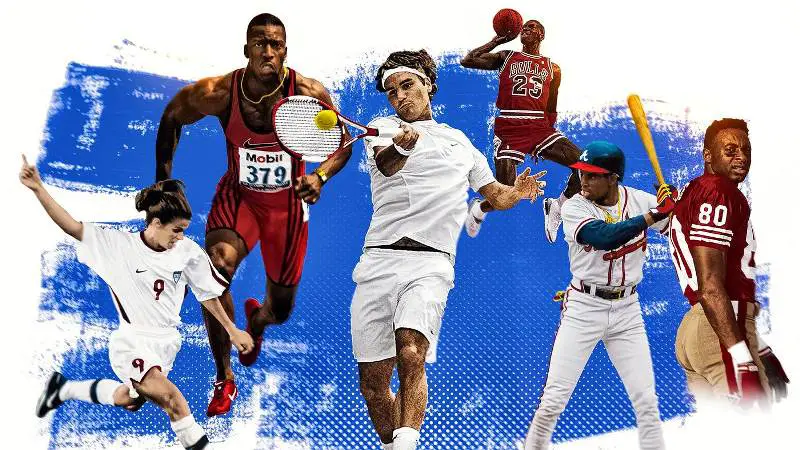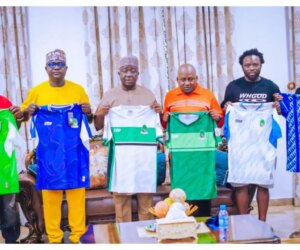The WhatsApp message from coach Uche Okechukwu came through at 3:47 AM: “Match report deadline 6am. Stadium floodlights failed, game moved to 2pm tomorrow but coverage still needed for morning edition.” David, a sports correspondent covering the NPFL for multiple outlets, had just four hours to craft a comprehensive preview piece about the rescheduled Rivers United vs. Enyimba clash.a
He worked frantically, combining player interviews, tactical analysis, and historical context into what he thought was compelling sports journalism. But when his editor called at 7 AM, the conversation wasn’t about his insightful analysis of Rivers United’s new formation. Instead, it focused on a single typo in the headline that made “Enyimba’s Championship Chase” read as “Enyimba’s Championship Case.” That one letter difference had created confusion about whether the piece was match preview or legal analysis, and social media was already buzzing with jokes about the mix-up.
For David, this frustrating experience highlighted a crucial reality in modern sports media: in an industry where breaking news moves at lightning speed and every story competes for attention, even the smallest communication errors can overshadow the most brilliant sports insights.
The High-Stakes World of Sports Communication
Sports journalism operates in a uniquely demanding environment. Whether you’re covering the Premier League, reporting on the Super Eagles, analyzing AFCON tournaments, or breaking transfer news, you’re working against tight deadlines while millions of passionate fans scrutinize every word. Unlike other industries where mistakes might go unnoticed, sports content lives in the public eye where errors become viral talking points.
Consider the ripple effects when sports content contains mistakes: inaccurate player statistics can mislead fantasy football managers, unclear match reports can confuse betting odds, and grammatical errors in transfer rumors can damage a journalist’s credibility. In African football coverage particularly, where international audiences rely on local correspondents for authentic insights, maintaining professional communication standards becomes even more critical.
The sports industry rewards accuracy, speed, and authority. Fans trust journalists who consistently deliver error-free, well-crafted content, and editors promote writers who combine sports knowledge with communication excellence.
The Professional Edge Every Sports Writer Deserves
This is where Trinka’s grammar checker becomes invaluable for sports journalists and content creators. While your expertise in football tactics, player analysis, and match dynamics sets you apart as a sports writer, Trinka ensures that your communication quality matches your sporting knowledge. Designed for professional writing, Trinka understands the formal tone required in sports journalism while catching errors that could undermine your credibility.
Whether you’re filing match reports, conducting player interviews, writing tactical breakdowns, or crafting transfer analysis, Trinka helps ensure that every piece you publish reflects the professional standards that serious sports journalism demands. Your insights about the Flying Eagles’ World Cup preparations or analysis of Osimhen’s performance deserve content that reads as expertly as your sports knowledge runs deep.
Imagine submitting breaking news with complete confidence, knowing that your grammar is flawless, your syntax is clear, and your professional reputation remains spotless regardless of deadline pressure. That’s the competitive advantage of combining sports expertise with communication excellence.
Read Also: 2025 U-20 W/Cup: Johansen Pleased With Win Over ‘Very Tough Opponent’ Flying Eagles
Maintaining Credibility in Sports Media
In sports journalism, where information travels fast and sources are often shared across multiple outlets, maintaining originality while properly crediting sources becomes crucial. When you’re referencing match statistics, quoting player interviews, or building on transfer reports from international sources, Enago’s Plagiarism Checker helps ensure that your content maintains integrity while properly attributing information.
This is particularly valuable when covering international tournaments like AFCON or World Cup qualifiers, where multiple journalists cover similar stories and proper attribution of quotes, statistics, and breaking news becomes essential for maintaining professional ethics and avoiding potential conflicts.
Navigating AI in Modern Sports Media
As AI tools become increasingly common in sports content creation—from generating match statistics to assisting with quick news summaries—maintaining transparency about content creation becomes important for journalistic integrity. Trinka’s AI Content Detector helps sports writers ensure authenticity in their reporting and maintain the personal analytical voice that makes great sports journalism compelling.
Whether you’re reviewing AI-assisted draft articles, maintaining editorial policies about AI use, or preserving the unique perspective that makes your football analysis stand out from generic content, having the ability to identify AI-generated text helps maintain the authentic voice that sports fans value.
Building Your Sports Media Workflow
The most successful sports journalists develop systems that help them maintain quality under pressure. Just as football teams practice set pieces until they become automatic, incorporating quality communication tools into your writing routine ensures that excellence becomes habitual rather than accidental.
Consider building these practices into your sports writing routine:
- Breaking news: Quick grammar checks before publishing time-sensitive stories
- Match reports: Ensure tactical analysis is clearly communicated and error-free
- Feature pieces: Polish longer-form content about players, clubs, and sporting culture
- Social media: Maintain professional standards across all platforms and formats
The Trust Factor in Sports Journalism
Sports fans are incredibly passionate and knowledgeable about their teams and players. They notice everything—from incorrect statistics to poorly constructed sentences. When your writing consistently demonstrates both sports expertise and communication excellence, you build the trust that transforms casual readers into loyal followers.
This trust translates into professional opportunities: editors assign bigger stories to writers they trust, players grant interviews to journalists with professional reputations, and media outlets compete for contributors who combine sports knowledge with reliable communication skills.
The Competitive Advantage of Perfect Execution
In sports, the difference between winning and losing often comes down to execution under pressure. The same principle applies to sports journalism. When deadline pressure mounts and breaking news demands immediate coverage, writers who have mastered both their craft and their communication tools consistently outperform those who rely solely on sports knowledge.
Remember David from our opening story? After incorporating quality communication tools into his workflow, he found that his reputation among editors improved dramatically. Clear, error-free sports writing meant more assignment opportunities, better editor relationships, and growing recognition as a reliable voice in Nigerian football coverage.
Scoring Goals in Sports Media
Today’s sports media landscape rewards professionals who can combine deep sporting knowledge with flawless execution. Whether you’re covering local NPFL matches or international tournaments, analyzing transfer markets or profiling emerging talents, your success depends on delivering insights that are both expertly informed and expertly communicated.
The sports world moves fast, but it also remembers quality. Every match report, every breaking news story, and every feature article contributes to your reputation as a sports journalist. When your communication matches the caliber of your sporting expertise, you create the foundation for a career that can keep pace with the games you love covering.
In sports, champions are defined by their ability to perform when it matters most. In sports journalism, champions are writers who deliver perfect execution under deadline pressure, combining passionate sports knowledge with professional communication that respects both the games and the audiences who love them.








